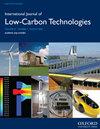基于改进神经网络的固体氧化物燃料电池发电电压预测优化
IF 2.3
4区 工程技术
Q3 ENERGY & FUELS
引用次数: 0
摘要
本文提出了一种基于独立固体氧化物燃料单电池(SOFC)仿真模型在理想条件下的数据结果预测固体氧化物燃料电池发电电压的方法,旨在提高固体氧化物燃料电池的发电效率,延长其使用寿命。本文采用改进的BP神经网络算法,利用鲸鱼算法对BP神经网络模型进行优化,提高其收敛性,达到提高预测精度的效果,提高固体氧化物燃料电池发电电压的预测精度。首先对独立固体氧化物燃料电池的特性进行了介绍和仿真。其次,对长短期记忆网络模型(LSTM)、线性回归网络模型和BP神经网络模型进行了仿真比较,结果表明BP神经网络预测模型更加准确,可以进行优化和改进。最后,利用whale算法对BP神经网络进行了优化和仿真,仿真结果表明,该方法比传统BP神经网络预测模型具有更好的收敛性和更高的预测精度。本文章由计算机程序翻译,如有差异,请以英文原文为准。
Optimization of solid oxide fuel cell power generation voltage prediction based on improved neural network
This paper proposes a method for predicting the generation voltage of a solid oxide fuel cell based on the data results of a stand-alone solid oxide fuel single cell (SOFC) simulation model under ideal conditions, with the aim of improving the generation efficiency and extending the service life of the solid oxide fuel cell. In this paper, a modified BP neural network algorithm is used to improve the prediction accuracy of the solid oxide fuel cell generation voltage by using the whale algorithm to optimize the BP neural network model to improve its convergence and achieve the effect of improving the prediction accuracy. Firstly, the characteristics of the independent solid oxide fuel cell are introduced and simulated. Second, the long short-term memory network model (LSTM), linear regression network model and BP neural network are simulated and compared, and the results show that the BP neural network prediction model is more accurate and can be optimized and improved. Finally, the BP neural network is optimized and simulated using the whale algorithm, and the simulation results show that the method has better convergence and higher prediction accuracy than the traditional BP neural network prediction model.
求助全文
通过发布文献求助,成功后即可免费获取论文全文。
去求助
来源期刊

International Journal of Low-carbon Technologies
Engineering-Architecture
CiteScore
4.30
自引率
4.30%
发文量
106
审稿时长
27 weeks
期刊介绍:
The International Journal of Low-Carbon Technologies is a quarterly publication concerned with the challenge of climate change and its effects on the built environment and sustainability. The Journal publishes original, quality research papers on issues of climate change, sustainable development and the built environment related to architecture, building services engineering, civil engineering, building engineering, urban design and other disciplines. It features in-depth articles, technical notes, review papers, book reviews and special issues devoted to international conferences. The journal encourages submissions related to interdisciplinary research in the built environment. The journal is available in paper and electronic formats. All articles are peer-reviewed by leading experts in the field.
 求助内容:
求助内容: 应助结果提醒方式:
应助结果提醒方式:


